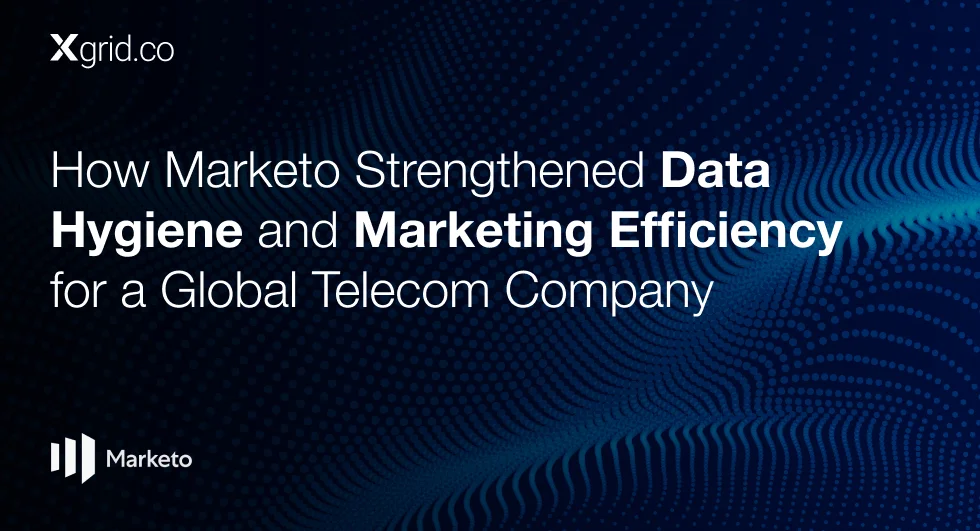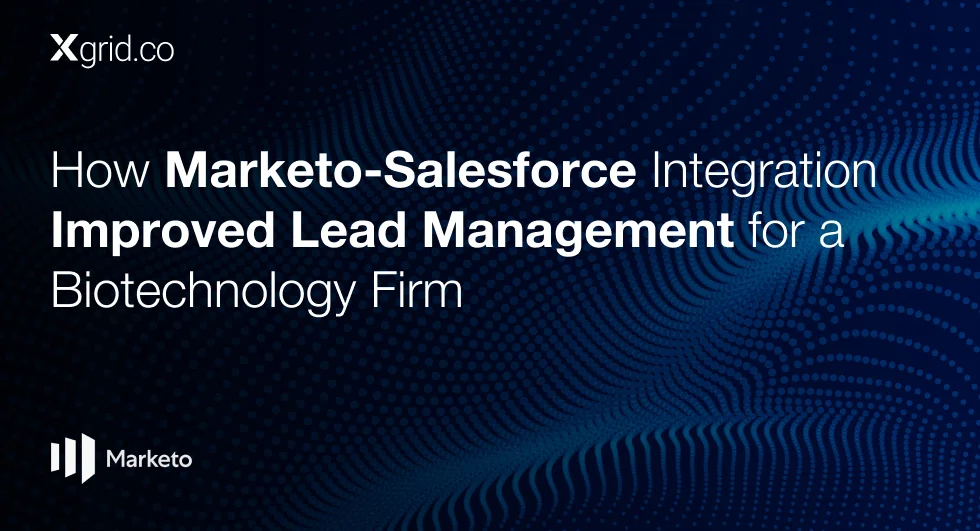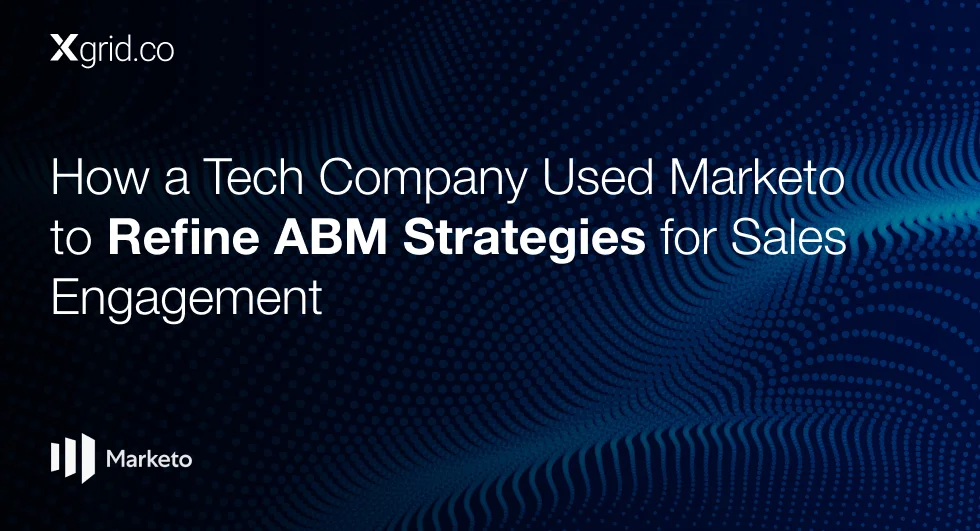Hybrid Marketing Automation: Advantage of Using Both HubSpot and Marketo
A hybrid approach, combining HubSpot and Marketo, is becoming a preferred strategy for businesses that need both ease of use and deep customization.
In this article, we draw from the insights of Amy Abascal, a fractional CMO and expert in marketing operations, who explains how this hybrid approach can offer businesses the best of both worlds.
Key points covered include:
- The powerful integration of Salesforce-Marketo for companies requiring robust lead scoring
- The role of HubSpot for businesses starting their automation journey or focused on content marketing
- How a hybrid stack balances simplicity with customization to scale marketing efforts
- The missed potential of Bizible post-Adobe acquisition
- The rise of fractional CMOs and the shift toward strategic marketing leadership
1. HubSpot and Marketo: The Best of Both Worlds in Automation
As businesses grow, so do their marketing automation needs. For companies with more sophisticated requirements, Marketo’s robust lead scoring capabilities paired with Salesforce make it a top-tier solution. According to Amy, “I’d much rather have a Salesforce and Marketo stack than a straight HubSpot stack,” reinforcing the idea that Marketo’s flexibility in lead scoring and lifecycle management is crucial for businesses managing complex sales cycles.
At the same time, HubSpot offers value for businesses that are early in their automation journey, focusing on content-driven strategies or simpler workflows. “HubSpot has come a long way,” Amy acknowledges, highlighting its ease of use for blog management and content marketing. This makes HubSpot ideal for smaller businesses or teams that don’t need the full range of features offered by Marketo.
Amy’s hybrid use of both platforms—leveraging Marketo for lead scoring and HubSpot for content management—demonstrates how businesses can scale their marketing efforts gradually, with Marketo’s power complementing HubSpot’s simplicity.
1.1 Actionable Tip:
For businesses with advanced marketing needs, start with Salesforce-Marketo for CRM integration and lead scoring. If you’re just starting out, use HubSpot for content management and transition to a hybrid model that incorporates Marketo as your automation needs grow.
2. Bizible: A Post-Acquisition Letdown
Bizible, a tool designed for revenue attribution, was expected to bring significant value to Adobe’s marketing suite following its acquisition of Marketo. However, it has since become an underutilized asset, a point that Amy Abascal emphasizes from her experience consulting with companies. “Adobe has kind of stopped supporting it. It’s fairly difficult to use, and I haven’t seen much development on it in a while,” Amy remarks, expressing her frustration with Bizible’s stagnation.
This lack of support has become a missed opportunity, especially for businesses that rely on accurate revenue attribution to track the ROI of their marketing efforts. Without continuous updates and strategic backing, Bizible fails to provide the full value expected from such a tool, leaving companies to explore alternative options for measuring marketing effectiveness.
2.1 Actionable Tip:
Businesses that depend on revenue attribution should closely monitor the development of tools like Bizible. If support continues to lag, consider third-party alternatives to fill the gap and ensure your marketing ROI is tracked accurately and consistently.
3. The Shift Toward Fractional CMOs: Strategic Leadership Over Execution
As companies grow and their marketing operations become more complex, the role of marketing leadership is evolving. Instead of focusing on the execution of marketing tasks, leaders like Amy Abascal are shifting toward strategic consulting roles. With over 20 years of experience in marketing operations, Amy’s career path from corporate roles to fractional CMO mirrors a broader trend of outsourcing marketing leadership.
“Right now, I don’t have any clients using Marketo; all of my clients are using HubSpot,” Amy explains, reflecting her shift from day-to-day operations to strategic guidance. Fractional CMOs like Amy are brought in to help companies create long-term marketing automation strategies, implement CRM systems, and optimize their overall marketing efforts without the need for a full-time senior hire.
This shift indicates that more businesses are recognizing the value of outsourcing high-level marketing strategy, especially in fast-scaling environments. By focusing on the big picture and offering a fresh perspective, fractional CMOs enable companies to benefit from senior marketing expertise without the overhead costs associated with permanent roles.
3.1 Actionable Tip:
As your business scales, consider leveraging fractional CMOs or consultants to lead your long-term marketing strategy. This allows for seasoned expertise at a fraction of the cost and ensures your automation and CRM efforts align with overall business goals.
4. Conclusion: Balancing Flexibility, Integration, and Strategic Leadership
In an era of evolving marketing automation, businesses must make informed decisions about the platforms and strategies they adopt. The Salesforce-Marketo stack remains a robust solution for organizations that require scalable lead scoring and deep CRM integration, while HubSpot serves as an excellent starting point for businesses focused on content management and ease of use.
At the same time, businesses need to be cautious of underutilized tools like Bizible, ensuring that their revenue attribution solutions deliver value. Lastly, as marketing operations grow more complex, outsourcing strategic leadership through fractional CMOs offers companies a way to access top-tier marketing expertise without the financial burden of full-time senior hires.
By adopting a hybrid approach, being vigilant about underperforming tools, and embracing strategic leadership, businesses can not only meet their current needs but also position themselves for long-term success in an increasingly automated marketing landscape.
Downloads
Article (PDF-276 KB)MOST POPULAR INSIGHTS
- How Marketo Strengthened Data Hygiene and Marketing Efficiency for a Global Telecom Company
- How Marketo-Salesforce Integration Improved Lead Management for a Biotechnology Firm
- How a Tech Company Used Marketo to Refine ABM Strategies for Sales Engagement
- How Marketo Campaigns Were Streamlined with Templates and Tokens
- How Marketo Solidified Marketing Insights with Custom Attribution Models
Related Articles
Related Articles

Established in 2012, Xgrid has a history of delivering a wide range of intelligent and secure cloud infrastructure, user interface and user experience solutions. Our strength lies in our team and its ability to deliver end-to-end solutions using cutting edge technologies.
OFFICE ADDRESS
US Address:
Plug and Play Tech Center, 440 N Wolfe Rd, Sunnyvale, CA 94085
Dubai Address:
Dubai Silicon Oasis, DDP, Building A1, Dubai, United Arab Emirates
Pakistan Address:
Xgrid Solutions (Private) Limited, Bldg 96, GCC-11, Civic Center, Gulberg Greens, Islamabad
Xgrid Solutions (Pvt) Ltd, Daftarkhwan (One), Building #254/1, Sector G, Phase 5, DHA, Lahore




